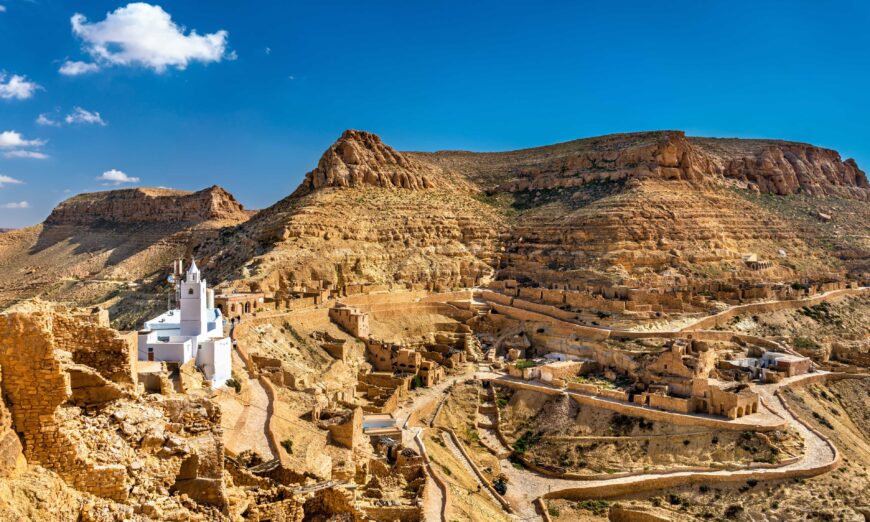
At the crossroads of the eastern and western Mediterranean, Tunisia is located at 140 km from Europe. Thanks to its geo-strategic position, Tunisia is at the heart of the Euro-Mediterranean logistics chain and the first point of entry into African and the middle East Region which makes it a regional hub for investment as well as for trade and production.
The diversity of its Economy is reflected by the presence of high value-added activities such as the electronic and the digital sectors. This diversity is consolidated by a developing industrial and technological infrastructure offering access to multiple business opportunities.
The digital and electronics industries, drivers of economic growth in Tunisia
Tunisia has developed its economy with an important focus on the industry and the technology and the synergy between the two components. Positive results have been recorded especially in the digital and electronics sector. The electronic industry represents almost 28% of the country’s exports with an annual growth of more than 13%. 434 companies including 234 international players are operating in the sector and contributed to the creation of 120,000 jobs, 20% of them are engineers.
The digital sector has recorded an average annual growth of 8% over the past 5 years. It currently generates more than 40,000 direct jobs. Almost 2,200 IT companies are active in Tunisia, more than half are offering innovative IT solutions. Many reasons contributed to this important evolution in the two/ both sectors:
Highly skilled and competitive human resources
Tunisia has strongly invested in the education which allowed to reach a performant educational system with a diversified programmes in the public and private universities. More than 60,000 new graduates enter each year the labour market, 35% of whom specialised in engineering and digital.
The Tunisian education system is strongly oriented towards Research and Development (R&D) for which Tunisia has the highest concentration of researchers among Arab and African countries. In addition, ambitious training and screening programmes are being carried out simultaneously with the industry upgrading programme in order to tailor qualifications and human capital to the industry needs. The Tunisian workforce is, today very competitive with high productivity and dedication. Many international firms are managed by Tunisian talents with a high level of flexibility, adaptability and multilingualism. As an example of the success realised by Tunisian talents, the German company BioNTech acquired in 2023 the Tunisian artificial intelligence start-up InstaDeep founded by two Tunisian remarkable entrepreneurs in 2014 to create artificial intelligence products for businesses. Powered by high-performance computing and outstanding research and development breakthroughs, InstaDeep utilises deep reinforcement learning and other advanced machine learning techniques to create AI systems that can optimise decision-making processes in real-life industrial environments.
Well-developed industrial and technological infrastructure
The infrastructure in Tunisia has been extensively upgraded in recent years which allowed the electronic and the digital industries to benefit from a modernised telecommunication network and well developed industrial locations that meets international standards.4 IT-oriented technology parks as well as 19 cyberparks are available across the country and entirely dedicated to host innovative startups. Tunisia has also nearly 200 well equipped industrial zones located over the entire territory which has enabled the country to be selected by many foreign companies for the development of high value-added electronics and engineering activities.
Synergy between Innovation and industry
Tunisia has established many institutional and legal mechanisms to promote the synergy between education, research and industry. In 2018, the government announced the program of Startup Act, the first law to be adopted on the African continent and aimed at making Tunisia a Startup Nation. The program including 20 measures was established to boost entrepreneurship and innovation through the simplification of the administrative procedures for start-ups, facilitation of their access to financing, and the creation of favorable conditions to promote the development of their businesses locally and internationally.
In addition, the National Strategic Plan “Digital Tunisia 2020” was adopted in order to position Tunisia as a regional technological hub between Europe, Africa and the Middle East. It was renewed as part of the National Strategy for Digital Transformation 2021-2025 which aims at putting digitalization at the heart of the economic and social development of the country.
It is also in the same context that the Ministry of Industry is also engaged to support the digitalization of the sector in order to make it more competitive through the promotion of the Industry 4.0 as part of the GIZ digital transformation program.
Important achievement was done by the implementation of support services for SMEs through two Industry 4.0 Centers in Sousse and Sfax to improve the productivity of industrial companies and increasing their competitiveness.
Simplified and Transparent legal framework
Tunisia has established an investment law with international standards aiming to guarantee greater freedom of investment and to offer more flexible procedures as well as appropriate protection for private operators, thanks to a diversified and transversal system covering all sectors of the economy. Its objective is to improve investment conditions and attract a significant flow of private, national and international capital.
The new reforms and the revision of authorizations for economic activities consolidate the attractiveness and the competitive of the country in terms investment implementation and expansion.
We encourage Indian companies to invest in Tunisia, Tunisa is not only a destination for Indian companies seeking to invest in highly added value sectors but also a big market for those who want to expand their activities in Europe, middle East, and neighbouring markets.
FIPA-Tunisia stands ready at the disposal of foreign companies that need to do visits of prospection in Tunisia, will be the interlocutor of the company from the idea of its project till the implementation of the project.

